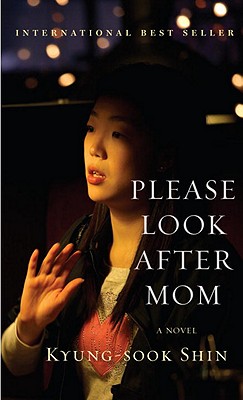
Especially my dad who has been on his own since 9, working at various temples to have a place to stay doing all kinds of odd errands & jobs.

I briefly mentioned about my parents in another review, but both of my parents had rough childhoods. I kept thinking of my parents, especially my mom as I read the novel. It’s so hard to believe that I used to live exactly like the rural life described in the book. This novel brought back of some of my fondest childhood memories of growing up in a rural countryside in Korea.

I think that is why the novel did so well worldwide. Although set in South Korea, this book will undoubtedly resonate with many people because of its universal theme - family, motherhood, love & loss, tradition, and familial obligations & duties. Simple in prose, it wasn’t necessary that the writing in itself was good, but what the book was about that made the novel good. I cried so hard reading this book, I do not recommend you read it in public and make sure you have a box of tissue handy. Kyung Sook Shin’s “Please Look After Mom,” winner of The Man Asian Literary Prize was a deeply affecting, tear-jerker read. Why did I never give a thought to Mom's dreams?- Kyung-Sook Shin, Please Look After Mom So why did we think of Mom as a mom from the very beginning? She didn't have the opportunity to pursue her dreams, and all by herself, faced everything the era dealt her, poverty and sadness, and she couldn't do anything about her very bad lot in life other than suffer through it and get beyond it and live her life to the very best of her ability, giving her body and her heart to it completely. As memories accrue, the narrative becomes increasingly poignant and psychologically revealing of all the characters, and though it does sometimes go soggy with pathos, most readers should find resonance in this family story, a runaway bestseller in Korea poised for a similar run here.I have so many dreams of my own, and I remember things from my childhood, from when I was a girl and a young woman, and I haven't forgotten a thing.

Narrating in her own voice late in the book, the spirit of Mom watches her family and finally voices her lifelong loneliness and depression and recalls the one secret in her life. Her irresponsible and harshly critical husband, meanwhile, finally acknowledges the depth of his love and the seriousness of her sacrifices for him. Having, through Mom's unstinting dedication, achieved professional success, her children understand for the first time the hardships she endured. After Park So-nyo's disappearance, her grown children and her husband are filled with guilt and remorse at having taken So-nyo for granted and reflect, in a round-robin of narration, on her life and role in their lives. Shin's affecting English-language debut centers on the life of a hardworking, uncomplaining woman who goes missing in a bustling Seoul subway station.


 0 kommentar(er)
0 kommentar(er)
